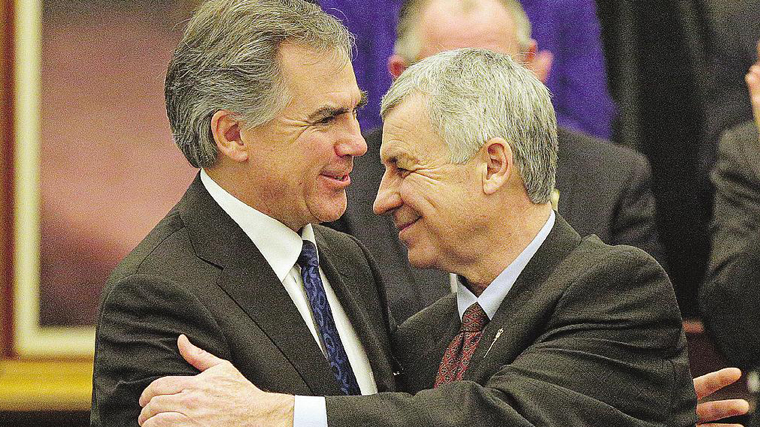After weeks of heated speculation, the provincial government released its newest budget last week. With oil prices at all-time lows, leaving a massive hole in the government’s revenue projections, concerns were widespread over the future of the services provided by the province. Although many areas received cuts, the province in general chose to hold the line on funding. However, with no budget increases to even match inflation, it means provincial departments need to continue doing more, with less.
Now what does this mean for students? The budget outlined a commitment to examining the way the province funds post-secondary education over the next five years. In the short term however, this means no further cuts beyond the current four per cent reduction announced in the budget.
“The Honourable Robin Campbell (Minister of Finance) in the Budget Speech stated, ‘We will work with the post-secondary institutions to preserve high demand, high value programs … ’ ” said NAIT President and CEO Dr. Glenn Feltham.
“On a very positive note, this is consistent with the alignment of our programs to Alberta’s labour market needs,” Dr. Feltham said. “In the coming months and years, we will work closely with our ministry and the Government of Alberta to ensure that NAIT achieves our vision and fulfills our promises to Alberta, to industry, to our students and to our staff.”
It is important to note that NAIT offers training for 33 of the 41 occupations the Government of Alberta has identified as being high demand for the future.
Meanwhile, the NAIT Students’ Association is optimistic about the effect the recent budget announcement has on NAIT students.
“The budget isn’t too bad,” said NAITSA President Hasib Baig.
“NAIT didn’t get a huge cut in the first place so from the students’ side it shouldn’t be a concern for our members because, compared to U of A or MacEwan, NAIT is in a pretty good shape,” he said.
“The only concerning thing that was reported in the budget was the wording around the lines where it said that post-secondary education should rely less on public funding. This is a public institution, a publicly funded institution and it’s so important for Alberta’s economy to be able to receive funding from the government for post-secondary institutions going forward so we can educate properly and go from there.”
The distribution of government funding to post-secondary education has been a sore issue with significant cuts being passed down in recent years. Although the newest round of budget changes has been kinder to post-secondary funding, that doesn’t limit concerns. Outside of actual funding for post-secondary education come other rules and restrictions, like the tuition cap.
‘Good news’
“We were in a meeting with the Minister [of Innovation and Advanced Education] and to quote what he said, ‘there’s not going to be any imminent changes,’ which is the good news,” said Baig.
“So based on that, I think that it’s going to be pretty good.”
A change in the tuition cap would require moving away from holding tuition increases to the rate of inflation. There are other alternatives, however.
“Since he said there’s not going to be any changes, we’re going to be looking at stakeholder contributions from all across the province, probably the Post-Secondary Learning Act will open as well, which means there’s going to be people from every part of the sector,” said Baig.
Groups to be involved
“Every group is going to be involved and contributing as to what should change, what should be looked at and what should not be looked at. Where do we need to make changes, whether it’s about tuition cap, whether it’s about non-instructional mandatory fees or whether it’s about anything else, all those things will be looked at as well. But I don’t think the tuition cap is going to be removed right away.”
With the possibility of a snap election on the horizon and the uncertainty of Alberta’s oil economy still rocking the provincial budget, there’s no way to tell what the future will hold. All students can do is lobby for better consultation and representation and to make sure the political leaders are listening.
NICOLAS BROWN
Issues Editor
@bruchev






